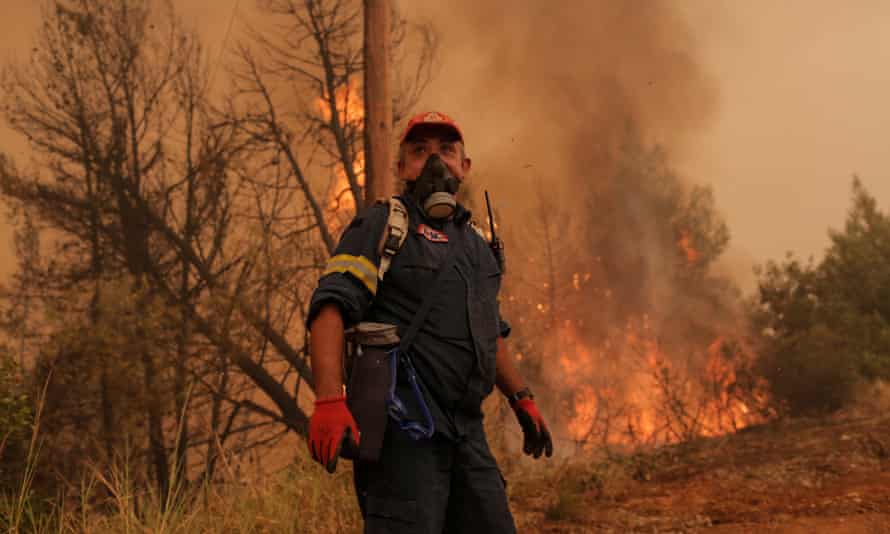The Guardian view on the IPCC climate report: the fierce urgency of now
The world’s political leaders must heed the dramatic warning that climate scientists have delivered

The sixth report of the Intergovernmental Panel on Climate Change (IPCC) was published against a glowing backdrop of orange skies, as vast wildfires sweep through Greece and California. In western Germany, thousands of homes remain without running water or electricity following the devastating floods of July. In Yakutsk in Siberia – the coldest winter city on earth – residents were warned last month to stay inside as forest fires filled the air with toxic smoke, following heatwaves that began in the spring.
Eight years in the making, authored by the world’s leading climate scientists and approved by 195 national governments, the report confirmed the meaning of the evidence before our eyes: the cumulative impact of human activity since the Industrial Revolution is “unequivocally” causing rapid and potentially catastrophic changes to the climate. The future that environmental scientists foresaw with alarm, when the IPCC produced its first report three decades ago, has arrived.
Without an accelerated reduction in greenhouse gases during the next decade, the ambition of the 2015 Paris climate agreement to limit global heating to 1.5C will not be met. The price of failure will be a world vulnerable to irreversible and exponential effects of global heating: there will be worse floods more often, more terrible and frequent heatwaves and devastating and repeated droughts.
The science is irrefutable. Less certain is the strength of political will to act upon it. An awesome burden of responsibility now rests upon this generation of leaders as humanity finds itself at a fork in the road. The actions taken or foregone during the next 10 years will define the parameters of the possible for future generations. A step-change is required, but across the world green rhetoric continues to translate into policymaking at a pace which is fatally slow. China has committed to the target of net zero emissions by 2060, but continues to build coal-fired power plants both at home and abroad. Along with top carbon-emitters such as Russia and India, it refused to endorse the 1.5C goal at an April summit convened by the American president, Joe Biden. As Mr Biden’s special envoy for climate, John Kerry, has said, if countries such as these cannot be persuaded to enact faster reductions over the next decade, the target looks unachievable.
At this treacherous turning point in history, Britain finds itself both uniquely placed and unprepared to host the crucial Cop26 climate summit in Glasgow. The government’s climate chief and Cop26 president, Alok Sharma, has tried to use the IPCC report as a means of concentrating minds. In an interview at the weekend, he said that the world was almost “out of time” in dealing with global heating. But ahead of arguably the most important summit held on British soil since the second world war, delay and equivocation have become the government’s trademark response to the greatest challenge of our times. The publication of a net zero strategy, due in the spring, has been delayed until the autumn amid fears over the possible cost. Some Tory backbenchers have begun to lobby for a slower transition, based on the false presumption that poorer families will disproportionately bear the burden of change.
A fair transition to net zero is indeed imperative. With the right forms of intervention and subsidies, it is also eminently achievable. The experience of the Covid-19 pandemic has taught us that the most daunting challenges can be met by political leaders who recognise that exceptional times require exceptional measures. But thus far, there is little sign that Boris Johnson’s government is willing to treat the climate crisis in the same way. The stark conclusions of the IPCC study, and Britain’s vital convening role at Cop26, make that position indefensible. The science is unequivocal. The verdict is clear. There is no more room for manoeuvre, delay or procrastination in dealing with a crisis which is this generation’s responsibility to address.